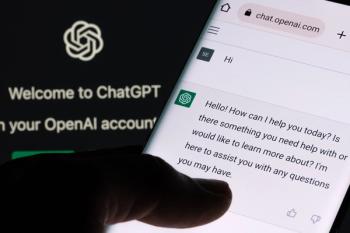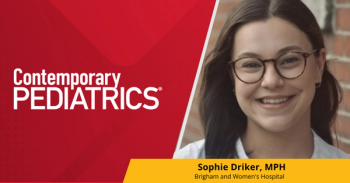
Michael Haller, MD: Providers could see more T1D patients on inhaled insulin
Michael Haller, MD, tell providers they shouldn't be surprised if more children with T1D use inhaled insulin.
Michael Haller, MD, professor and chief, Pediatric Endocrinology, University of Florida, explained that general providers should familiarize themselves with inhaled insulin for use among patients with type 1 diabetes in the pediatric population, despite it currently being used off-label.
It is currently only FDA approved in adults, but lots of people are prescribing it off label, and hopefully we'll have that FDA stamp of approval by sometime mid next year," Haller said. MannKind Corporation, manufacturer of the inhaled insulin Afrezza, earlier this month
findings indicated that inhaled insulin is safe and effective in children with T1D. Full study results, including a safety extension, have been submitted for presentation at a medical meeting sometime in the second half of 2025, according to MannKind.2
Even if off-label, Haller anticipates more children to be using it because of the benefits associated with it.
"I expect general pediatricians will see more and more of their patients coming in on it, [so] just being aware of its existence and offering it as an opportunity for their patients to achieve better control in a way that fits their lifestyle is, I think, what all of us as pediatricians, seek to do to serve our patients and families. So just being aware of it is a big first step.
In a previous interview with Contemporary Pediatrics, haller explained the safety and uses for inhaled insulin among patients with T1D.
"“The safety features of inhaled insulin are really now, quite clear,” said Haller. “There is a per-label instruction to check FEV1 before and then after starting inhaled insulin. What we saw in the pediatric study was that there was actually less of a decline in FEV1 in the inhaled insulin patients than there was in the injected insulin patients, which just adds to the dataset indicating that it really is safe.”
References:
- Fitch J. Michael Haller, MD, discusses inhaled insulin and Afrezza data for type 1 diabetes. Contemporary Pediatrics. August 7, 2025. Accessed August 20, 2025. https://www.contemporarypediatrics.com/view/michael-haller-md-discusses-inhaled-insulin-and-afrezza-data-for-type-1-diabetes
- MannKind Corporation reports second quarter 2025 financial results and provides business update. MannKind Corporation. Press release. August 6, 2025. Accessed August 7, 2025. https://investors.mannkindcorp.com/news-releases/news-release-details/mannkind-corporation-reports-second-quarter-2025-financial
- Fitch J. Michael Haller, MD, discusses safety and use for inhaled insulin in T1D. August 18, 2025. Accessed August 18, 2025. https://www.contemporarypediatrics.com/view/michael-haller-md-discusses-safety-and-use-for-inhaled-insulin-in-t1d
Newsletter
Access practical, evidence-based guidance to support better care for our youngest patients. Join our email list for the latest clinical updates.






